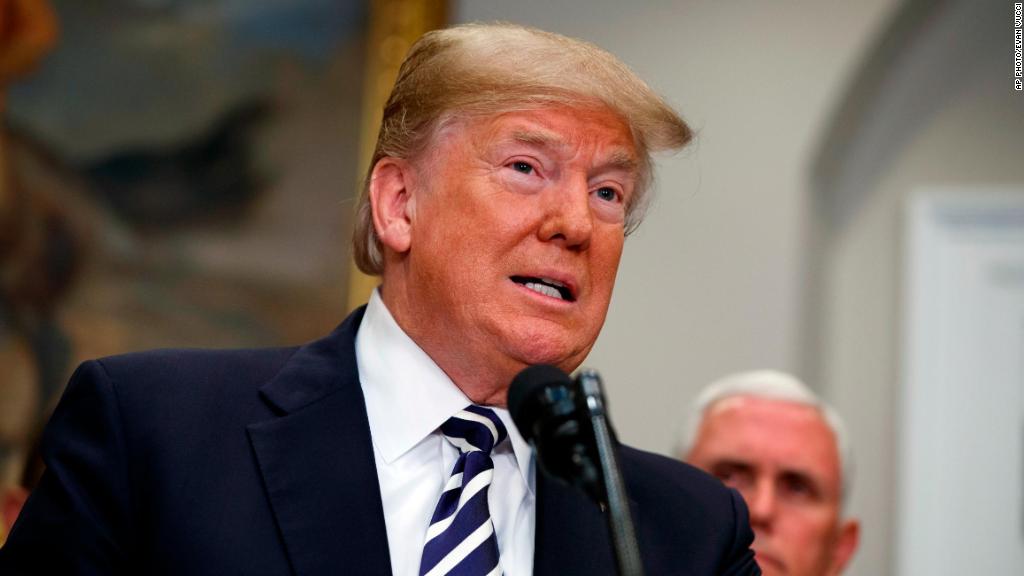
President Donald Trump lies, but not everything he says is a lie.
That's how CNN's Brian Stelter framed the debate over how the press should cover the president's false statements.
"We need to distinguish between a deflection, an exaggeration and a straight up lie," he said on Sunday's Reliable sources.
A fresh debate about the "L word" has been raging on social media in recent days, provoked by a string of false claims from the president.
Stelter said to CNN viewers: "I understand why many of you want news outlets to use the L-word, lie, more often. You want us to affirm what we all see: that Trump has a truth problem."
Stelter said some viewers also "want us to rethink how we do our jobs as a result. Maybe we shouldn't be reading his tweets aloud, because it's hard to believe anything he says."
But he argued that politicians like Trump engage in different types of dishonesty.
For example, when Trump claimed last week in a tweet that "killings are at a record pace" in Chicago — when they're actually down 22% — it's possible Trump had the wrong information. That would make it a falsehood, Stelter said.
In a different tweet on Saturday, the president asked why the FBI didn't contact him about the "phony Russia problem."
"Now, I think it's fair to call that one a lie, because according to NBC News, the FBI did brief him back in the summer of 2016," Stelter said. If Trump was briefed and now claims he wasn't, "that would make this tweet intentionally false, in other words a lie."
Related: The curious case of the White House official Trump says 'doesn't exist'
Joan Walsh, a national affairs correspondent for "The Nation" and a CNN contributor, suggested that some journalists and publications "go too far in trying to avoid the word lie."
"The word lie is very harsh, but it's very powerful," she said on "Reliable."
But Daniel Dale, the "Toronto Star" Washington bureau chief who tries to fact-check every word Trump says, argued that it's important to make careful distinctions.
"I think what's important as journalists, especially if we're going to hold ourselves out as arbiters of truth, we have to stick to what we know is true," he said on "Reliable."
In some cases, Dale said, "we know that this president is confused about policy. We don't know that his intent is deliberately to deceive."
But, in another example, when the president claimed the head of the Boy Scouts called him to praise a speech he gave, "we know that there was no such phone call," Dale said. "There's no word for that other than lie."
CNN White House reporter Sarah Westwood suggested Trump may make "blatantly untrue" statements knowing it will grab journalists' attention and dominate the news cycle, furthering his agenda.
Related: The magic word for President Trump's conspiracy theory
"President Trump exploits our journalistic impulses, knowing that we are going to have to discuss the context around any one of his claims," Westwood said.
She also said she thinks Trump's attempts to discredit anonymous sources, or claim journalists make them up, is among the most "corrosive ways he attacks the media."
Stelter pointed to recent remarks from "60 Minutes" correspondent Lesley Stahl. She said Trump told her a few months before the 2016 election that his anti-media attacks were aimed to "discredit you all and demean you all so, when you write negative stories about me, no one will believe you."
When asked how reporters should respond, Dale said: "I think we challenge it every time, we challenge it professionally."
"This is a central feature of his presidency, the incessant dishonesty," Dale said earlier in the show. "And I think it's still often tweeted as kind of a side show rather than the show, rather than the central story."


